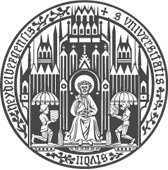
New Developments in Semantic Parsing and Discourse Analysis
Kursbeschreibung
| Studiengang | Modulkürzel | Leistungs- bewertung |
|---|---|---|
| BA-2010 | AS-CL, AS-FL | 8 LP |
| NBA | AS-CL, AS-FL | 8 LP |
| Master | SS-CL, SS-FL, SS-TAC | 8 LP |
| Magister | - | - |
| Dozenten/-innen | Anette Frank |
| Veranstaltungsart | Hauptseminar |
| Erster Termin | 20.10.2015 |
| Zeit und Ort | Di, 16:15–17:45, INF 325 / SR 7 (SR) |
| Commitment-Frist | 20.01.2016 |
Leistungsnachweis
Leistungsnachweis
- Regelmäßige und aktive Teilnahme
- Referat
- Projekt oder Hausarbeit
» Neu: Kursüberblick, Themen, Literatur
Inhalt
In the seminar we will be looking at two recent developments in the semantic analysis
of discourse that are closely related yet complementary. In the first part we investigate
current approaches in shallow and deep semantic parsing and how they can be enhanced
by distant supervision techniques using external knowledge bases. The second part
focuses on the analysis of extrapropositional meaning, and how to obtain models of
discourse that offer a global, high-level view of textual content, to be used in advanced
semantic NLP tasks, such as summarization, argumentation or plan recognition.
Semantic Parsing and Linking to Knowledge Graphs
While early approaches in deep semantic parsing are confronted with the lack of appropriate
training corpora, linking to large-scale knowledge graphs such as FreeBase or DBPedia
has been shown to be effective for solving this resource bottleneck. Distant supervision
through linking to knowledge graphs also proves effective in large-scale relation
extraction and shallow semantic analysis.
Mining and Representing Opinions and Argumentation
Novel NLP applications investigate "extrapropositional" aspects of meaning in discourse,
such as opinion and sentiment towards objects or states of affairs, including the
detection of intentions, plans or controversial views, which need to be distinguised
from actual facts. We will investigate how such higher-level aspects of meaning can
captured using discourse segmentation, topic modeling or graph labeling techniques.


